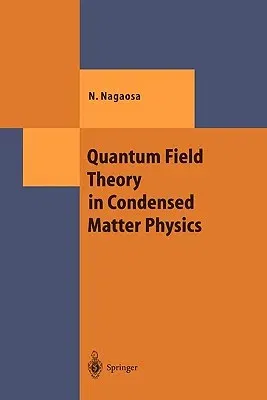Why is quantum field theory of condensed matter physics necessary?
Condensed matter physics deals with a wide variety of topics, ranging
from gas to liquids and solids, as well as plasma, where owing to the
inter- play between the motions of a tremendous number of electrons and
nuclei, rich varieties of physical phenomena occur. Quantum field theory
is the most appropriate "language", to describe systems with such a
large number of de- grees of freedom, and therefore its importance for
condensed matter physics is obvious. Indeed, up to now, quantum field
theory has been succesfully ap- plied to many different topics in
condensed matter physics. Recently, quan- tum field theory has become
more and more important in research on the electronic properties of
condensed systems, which is the main topic of the present volume. Up to
now, the motion of electrons in solids has been successfully de- scribed
by focusing on one electron and replacing the Coulomb interaction of all
the other electrons by a mean field potential. This method is called
mean field theory, which made important contributions to the
explanantion of the electronic structure in solids, and led to the
classification of insulators, semiconductors and metals in terms of the
band theory. It might be said that also the present achievements in the
field of semiconductor technology rely on these foundations. In the mean
field approximation, effects that arise due to the correlation of the
motions of many particles, cannot be described.


